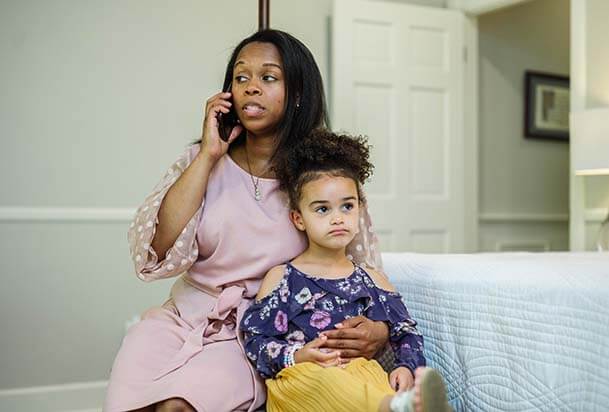

May 31 2023
In a Funk: Coping with Depression


Summary
You do not think yourself into depression, nor can you simply think your way out of it.
Not feeling like yourself lately?
We all get the blues, feel down in the dumps, stuck in a funk. However, when your mood starts to affect your ability to function, you may have depression.
Symptoms of Depression
Depression can be diagnosed when depressed mood or loss of interest or pleasure are present consistently for a two-week period accompanied by additional symptoms such as:
- Appetite and weight changes
- Physical or mental slowing that is apparent to others
- Fatigue or decreased energy
- Feelings of worthlessness or guilt
- Decreased concentration or inability to make decisions
- Recurrent thoughts of death or suicidal thoughts or actions
Depression is Not Your Fault
People often feel guilt or shame when they are unable to get better on their own. Depression is a medical condition that requires treatment. It is not caused by laziness or a lack of trying. Depression is no more your fault than any other medical condition and needs to be treated just the same.
Like many other medical illnesses, genetics and environment play a part in developing depression. Also like other medical illnesses, lifestyle changes can improve symptoms, but medication may also be required. You do not think yourself into depression, nor can you simply think your way out of it.
Lifestyle changes, such as maintaining a healthy and balanced diet, increasing activity or engaging in regular exercise, and improving sleep patterns can also help with depression. However, it is important not to give into the stigma surrounding depression. Depression is not due to a failure on your part and healing from depression is not a matter of simply “cheering up,” or “pulling yourself up by your bootstraps.” While symptoms may come and go, recurrent depression requires treatment to achieve remission.
Therapy
Professional help is available to treat depression. Therapy is often considered first line treatment and can come in several forms:
- Mindfulness can help with excessive worry or rumination (constant, repetitive thoughts about a problem) by training your thoughts to focus on what is present in the moment.
- Cognitive behavioral therapy (CBT) helps you retrain behaviors and coping mechanisms.
- Sleep CBT can improve sleep patterns, which can improve depression symptoms.
Medications
When therapy alone is not enough to improve depression, medication may be necessary. Medications for depression include antidepressants, mood stabilizers and a class called antipsychotics, which can be added to antidepressant medications to increase their effects.
Neurological Treatment
When medications and therapy are not enough to treat depression, your medical provider may recommend a neurological treatment, such as transcranial magnetic stimulation (TMS) or electroconvulsive therapy (ECT). These treatments help to “reset” the electrochemical activity in the brain that are decreased in depression.
Get Help
If you feel you are suffering from depression, check in with your physician to see if a referral is appropriate. Many companies provide an Employee Assistance Program for free counseling, so check with your employer to see if this is available to you.
Appointments are available for a face-to-face visit, via telehealth from one of our clinics located conveniently to you, or virtually using your phone, computer or tablet.
Get help and get back to yourself again.


Lauren Carter, RN
Lauren Carter is a registered nurse at North Mississippi Medical Center's Behavioral Health Outpatient Clinic. She earned her associate degree in nursing from Itawamba Community College in 2008 and her bachelor's degree in nursing from the University of Mississippi Medical Center in 2023. She joined the NMMC staff in 2007 and transferred to Behavioral Health in 2016.
Don't battle depression, anxiety or other mental health issues alone. If you need help living life again, we can help.

Subscribe to Our Newsletter
Like this content and want to get more? Sign up for True North, the health and wellness newsletter from North Mississippi Health Services!

Subscribe to Our Newsletter
Like this content and want to get more? Sign up for True North, the health and wellness newsletter from North Mississippi Health Services!

Nurse Link®
Call 1-800-882-6274 anytime to speak directly to a registered nurse and get immediate answers. Using computerized medical protocols, nurses direct callers to the most appropriate medical treatment. Our nurses are available 24 hours per day, seven days per week.